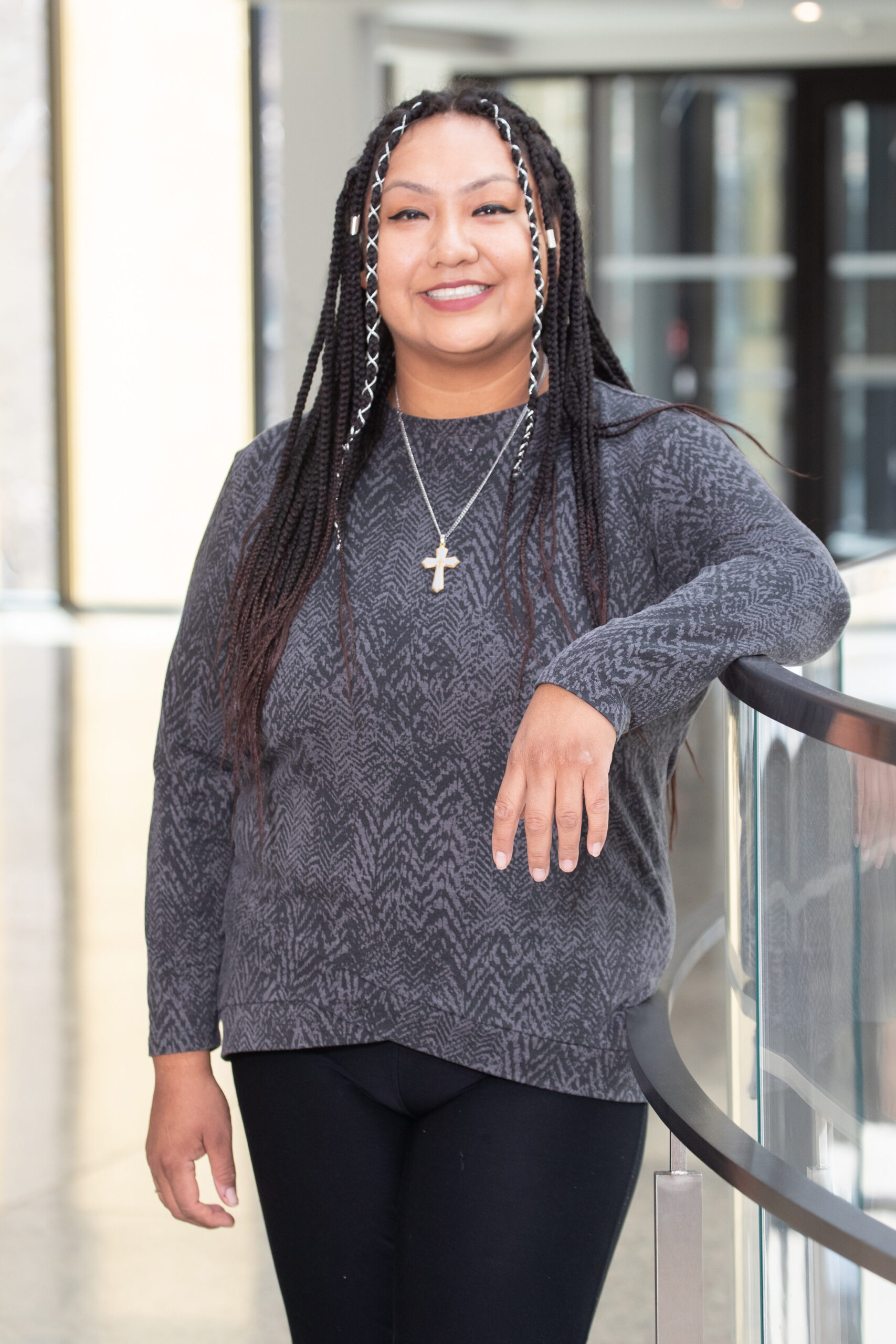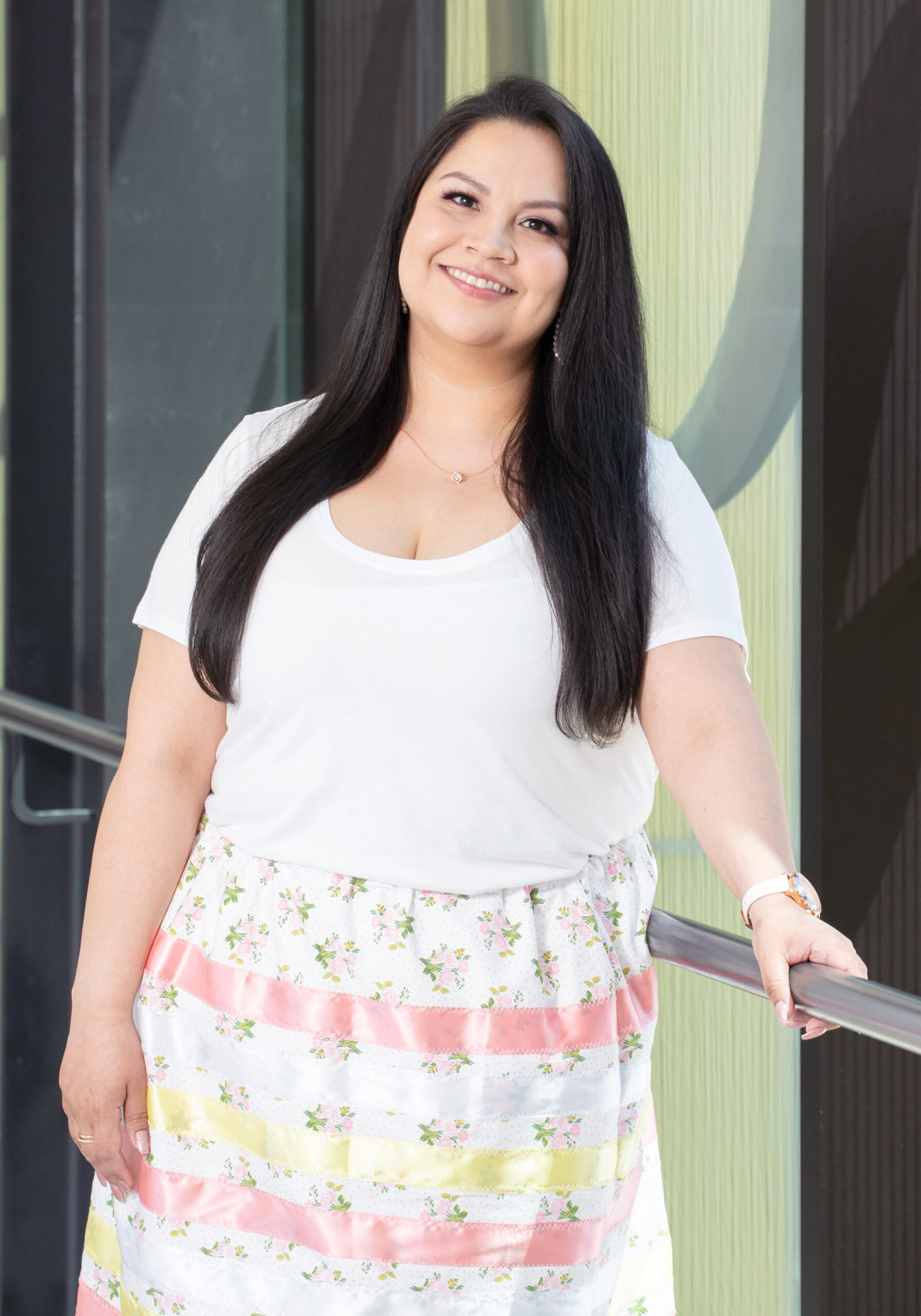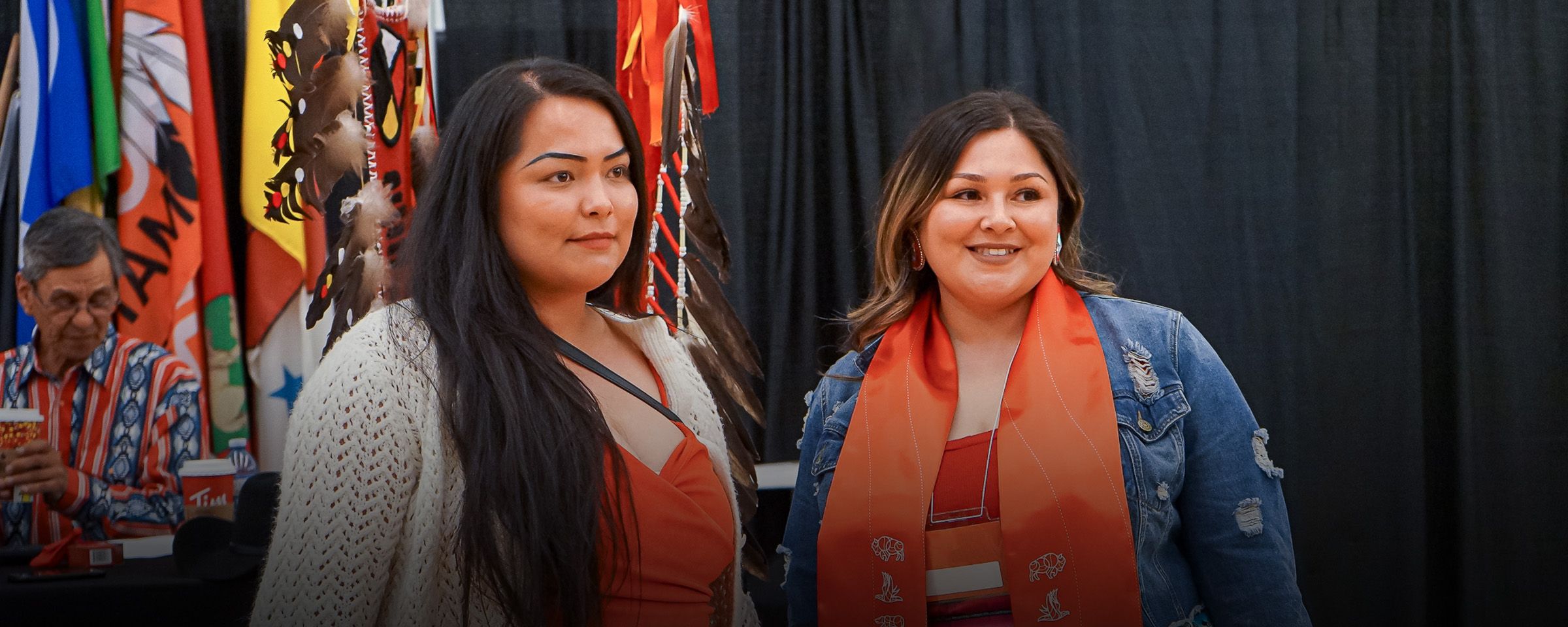2023 Mínwastánikéwin Award Recipients
The Mínwastánikéwin Award, named for the Cree word that means ‘to set it right’, was created in 2019 in partnership with RRC Polytech’s Campus Store during the first Truth and Reconciliation Week. Applicants were asked to write a one-page essay on what Truth and Reconciliation means to them as residential and day school survivors and children of survivors.
To set it right.
When we talk about Truth and Reconciliation, we mean that we want to set it right.
To set right the damage that Indigenous Peoples have endured over the last few centuries.
To set right the broken bones, so they might heal properly, to heal stronger.
To set right the history and perception of Indigenous Peoples, so the world might know the truth, to come together stronger.
This year, two recipients earned the Mínwastánikéwin Award: Rebecca Choken and Wendy Monias.
Rebecca Choken came to RRC Polytech unexpectedly. She’d been considering the future with her three-year-old daughter, who has Autism. Rebecca knew that she didn’t want to continue living off Employment and Income Assistance—she wanted to give her daughter stability. Her love and dedication for her daughter motivated Rebecca to seek new avenues to improve herself.
Rebecca applied for Business Administration and the College notified her of an opening at the Exchange District Campus for January 2023, which she readily took. Rebecca was in a whirlwind within the first few weeks of accepting the offer—she scrambled to find a daycare that could provide specialized care for her daughter, secured funding from her band, and gathered the necessary supplies to succeed in the program. The last time she’d been in school, it was pencils and paper. Everything happened so quickly, but she was ready for that first week of classes in January.
“I never thought I would get this award, at first. Sharing my story and my past trauma—it made me stronger as a person. The healing, just to be here… I sometimes think of my brother, and those that have passed on; they’d want the best for me,” said Rebecca.

The feeling of being undeserving, of being unworthy, of not having it as hard as others, is one of many symptoms of the intergenerational effects the residential school and day school legacy has had on survivors and children of survivors.
To heal, and to recognize when you need help healing, is a lot of lonely work. When much of your life has been painted with strokes of trauma and blots from loss, seeing an end to the cycle can be difficult. The work trauma creates doesn’t end with the trauma itself; the responsibility to heal is also thrust upon you. The mess trauma made in your home is one you task yourself with cleaning up.

Two years ago, on her 36th birthday, Wendy Monias joined the Red Road—a way of life dedicated to spiritual growth. She woke up that morning and decided that enough was enough and she was going to start a new chapter of her life. Wendy, who’d attended Indian day school, had moved to Winnipeg from Garden Hill First Nation in northern Manitoba when she was 12. The distance the move created was not only physical, but cultural and spiritual. Now, she’s actively reclaiming her culture and working towards her diploma in Business Administration. Last fall, Wendy went on her first hunting trip, caught her first moose, and attended her first medicine walk.
“It’s backwards. Elders are saying goodbye to so many young people, when it should be the young people sending off our Elders,” said Wendy. “I want to be a good example to my kids; to show them you can be strong at home, you can be graceful with yourself. I am accountable to my own healing.”
Wendy’s late kookum, Kelly McKay, was a residential school survivor and graduate of the same Business Administration program at RRC Polytech many years ago. Wendy credits her inspiration to her kookum, whom she recounted as kind, funny, and hard-working: everything Wendy wants to be for her kids and the people she’ll help in the future.
“Her attention to detail, organizational skills and drives inspires me every day. She knew how to keep her home tidy, study regularly and always had time for me. In times where I think I can’t balance everything, I think of her,” Wendy recalled.
The risk of applying for a bursary is not only, “What if I don’t get it?”, it is also, “What if I am taking it from someone who needs it more?” These doubts are echoed all throughout the submissions this year. Despite this, over 25 Indigenous students still applied – more than any other year. Over 25 Indigenous students still bore their teeth and their hearts, and told their stories.
Rebecca says the award was well-timed for her. She’d started her program just days after the new year and with a deadline of January 31, she was able to submit her application just under the wire. The award, she says, will ease the financial strain that’s come with the rapid-fire changes in her life, and help her spend more time with her daughter.
When she’s finished with her diploma, Rebecca says she wants to start her own business. She has friends in the Indigenous hip hop scene with whom she could potentially partner with in business. In the future, she wants to build a fashion apparel brand where she can integrate her beliefs, culture, work systems, and ancestors into the brand. She used to do beadwork as a hobby and has ideas to work accessories into the brand.
“Receiving this award means a lot to me, I’m very honoured,” said Rebecca. “It represents a lot of resilience in Indigenous People, it’s not only just me—there’s a lot of people that have been through similar things. You can overcome that. You can still pursue your dreams as long as you put your mind to it.”
For Wendy, the award helped her to make more time to spend with her kids. Between the time it takes to get to and from school, pick everyone up and head home, cooking meals and prepping for the next day, precious little time was often left in the days for Wendy to spend with her five kids. With the bursary, it freed up cumulative time that allowed her and her kids to sit down to full dinners and connect with each other after their long days.
“We’re really tight, me and my kids. The award’s helped me to catch up on things that needed catching up, and a huge weight has been lifted. I want my kids to have all the opportunities they can; you know, bible camps, winter retreats, school trips. My eldest, he’s 18; we’re fundraising for his band trip to Edmonton,” said Wendy.
Wendy hopes to have an office job when she’s finished with her diploma. She’s majoring in Marketing but might switch to Human Resources. She wants to open more doors and help other Indigenous women see where they can go.
For survivors and children of survivors, confronting your past is like screaming out into the sky, alone: baring your teeth and your heart and telling your story, tearing through your raw emotions and the weight of the things past. And it is, without fail, surprising to hear the sky speak back.
RRC Polytech recognizes the role it has as an educational institution in Truth and Reconciliation, in making it right. When Indigenous learners choose to become students at RRC Polytech, the College seeks to ease the burdens that resonate intergenerationally within survivors and the children of survivors of residential and day schools, while showing the rest of the community why this work is important through the stories of the Indigenous People this work affects.
To learn more about the Mínwastánikéwin Award, see the Awards, Bursaries and Scholarships catalogue.
